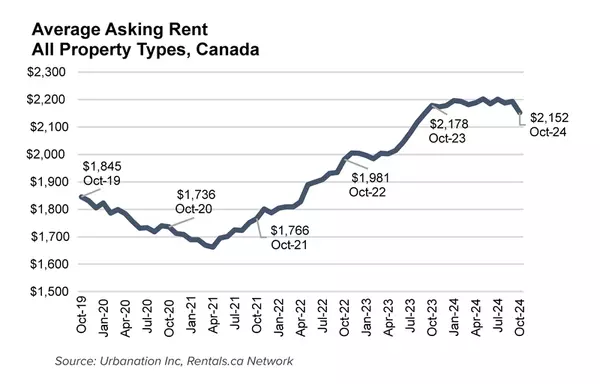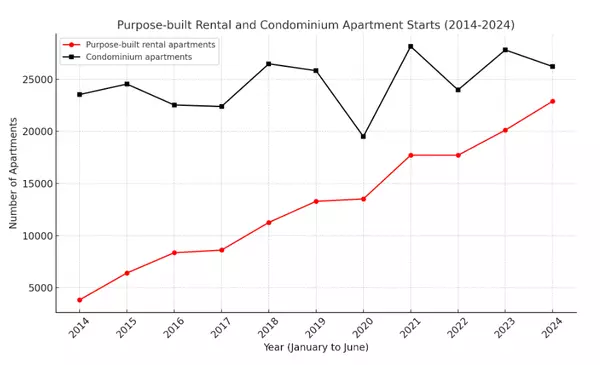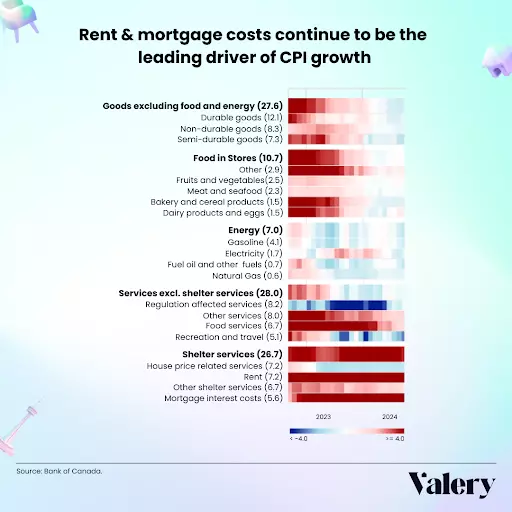The Hidden Costs and Construction Challenges Facing Canada’s Housing Market
Canada’s housing market continues to face challenges beyond high home prices and interest rates. For both real estate investors and developers, an environment where construction costs are increasing and hidden regulatory fees – particularly development charges – can impact profitability and add to difficulties. These issues affect the supply of new housing and its affordability, creating a complex situation.
In a recent interview, Simeon Papailias, co-founder of REC Canada discussed some of these issues with Phil Soper, CEO of Royal LePage.
Carrying Construction Projects: The Financial Strain
One of the most pressing concerns for real estate developers is the challenge of carrying construction projects over extended periods. The time it takes to move a project from concept to completion has grown significantly, particularly in major metropolitan areas like Toronto, Vancouver, and Montreal. High-rise projects often take between seven and ten years to complete, largely due to bureaucratic red tape and regulatory delays.
The longer a project takes to complete, the greater the financial burden becomes for developers. Interest rates, which have been rising steadily, increase the carrying costs, making it even harder for developers to maintain profitability. Since developers rely heavily on borrowed funds, they are acutely sensitive to the cost of financing these multi-year projects. When interest rates rise and timelines extend, the financial strain becomes unsustainable, leading to delays or outright cancellations.
Development Charges Effect
One major factor that exacerbates these challenges is the burden of development charges—fees imposed by municipal, provincial, and federal governments to cover the costs of infrastructure, parkland, and other public services. Development charges have become a significant, albeit under-discussed, component of housing prices. In some areas, these can be as high as 30%.
Development charges represent a substantial upfront cost for developers, adding to the already high financial burden of carrying long-term projects. Unlike labour or material costs, which can fluctuate based on market conditions, development charges are fixed costs that developers must pay regardless of other factors. This makes it difficult to adjust to changing economic conditions or cost pressures. These fees are likely passed on to consumers in the form of higher home prices, making housing even less affordable.
The Ripple Effect
As development costs rise—driven by a combination of prolonged timelines, increased carrying costs, and substantial development charges—developers are forced to pass these costs on to buyers. This creates a ripple effect throughout the housing market. Pre-construction projects, which are primarily driven by investors, become less attractive as profit margins shrink. This reduces the pool of capital available for new housing projects, which in turn stifles housing supply.
Capital Gains Effect
An additional factor in this reluctance is the recent increase in the capital gains inclusion rate from 50% to 66%, which further eats into investor profits. Without investors, many pre-construction projects simply do not happen, as end-users typically do not purchase homes five years before they are ready to move in.
This can create unsustainable conditions for developers: with rising costs and limited investor interest, fewer projects get off the ground, further constraining the already limited housing supply. Policy and tax changes could make a critical difference; stakeholder groups like RESCON are speaking out against policies like development charges. However, it is important for investors and stakeholders to continue to watch changes in these areas.
The full interview can be found here.
Categories
Recent Posts










GET MORE INFORMATION


